Stormont budget: UUP votes against budget as other parties agree
- Published
- comments
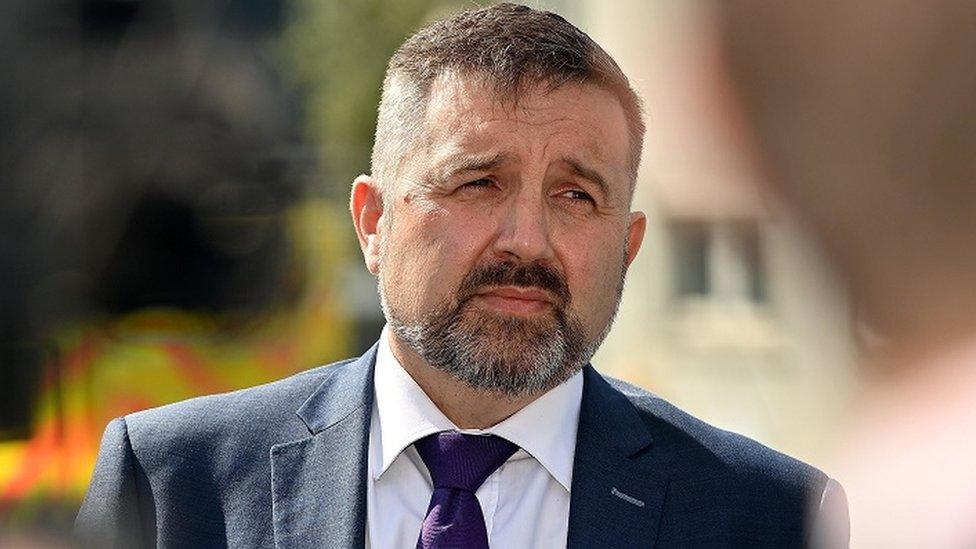
Health Minister Robin Swann, from the Ulster Unionist Party, voted against the budget
The Ulster Unionist Party (UUP) and its executive minister Robin Swann have voted against the Northern Ireland budget.
Other parties agreed a spending plan for the financial year, with about £14.5bn for day-to-day spending and about £1.8bn for capital spending.
The Department of Health gets the largest share of day-to-day funding - £7.76bn.
The next-largest allocation goes to the Department of Education -£2.87bn.
The Department of Justice has been allocated £1.26bn.
Mr Swann has warned that hospital waiting lists, pay settlements, GP services and domiciliary care packages will all be affected by the budget announcement.
'Incredibly serious consequences'
In a letter to Stormont's health committee, seen by BBC News NI, he said it was his duty to inform members of the "incredibly serious consequences" of the budget.
According to the minister, under this budget the executive is providing "precisely no additional targeted resources for waiting list activity".
Mr Swann said the only additional targeted investment would be the £34m provided as part of the UK government package for the restoration of devolution.
He said approximately £75-80m was needed to ensure people with cancer or time-critical conditions could be treated as required.
The letter stated that while Mr Swann had previously asked for an additional £1billion to maintain services he was prepared to reduce this by £200m to bring the figure down to £800m
Mr Swann said he "could not stand over the implementation of cuts on this scale".
"I have a real fear that a service that is currently struggling in many areas could be pushed to the point of collapse in at last some areas," he added.
Mr Swann added that the Health Department had been "left in a position where we were actually receiving a 2.3% cut on what we receive and on what we spent last year".
"Not only is this a budget that doesn't prioritise health, this is a budget that actually removes funding from the health service in Northern Ireland," he said.
Speaking from Great Hall at Stormont, flanked by Mr Swann and Strangford MLA Mike Nesbitt, UUP leader Doug Beattie branded the budget "unacceptable" but vowed to "continue the fight".
"The parties have forced through a budget which absolutely does not give the need required for the health department," said Mr Beattie.
"The health minister can't stand over it and I as a party leader can't stand over it."
In the previous budget, which was imposed by Northern Ireland Secretary Chris Heaton-Harris, health received baseline spending of just over £7.3bn.
BBC News NI understands the Department of Health has received an additional £500m.
While the health minister had previously asked for an extra £1bn, he had most recently proposed that he could try and work with £800m instead.
The department's allocation is therefore £300 million short.
Disagreement 'disappointing'
First Minister Michelle O'Neill, of Sinn Féin, said health had been prioritised while Deputy First Minister Emma Little Pengelly said agreeing a budget was "the responsible thing to do".
Ms O'Neill said it was disappointing Mr Swann had not supported the budget.
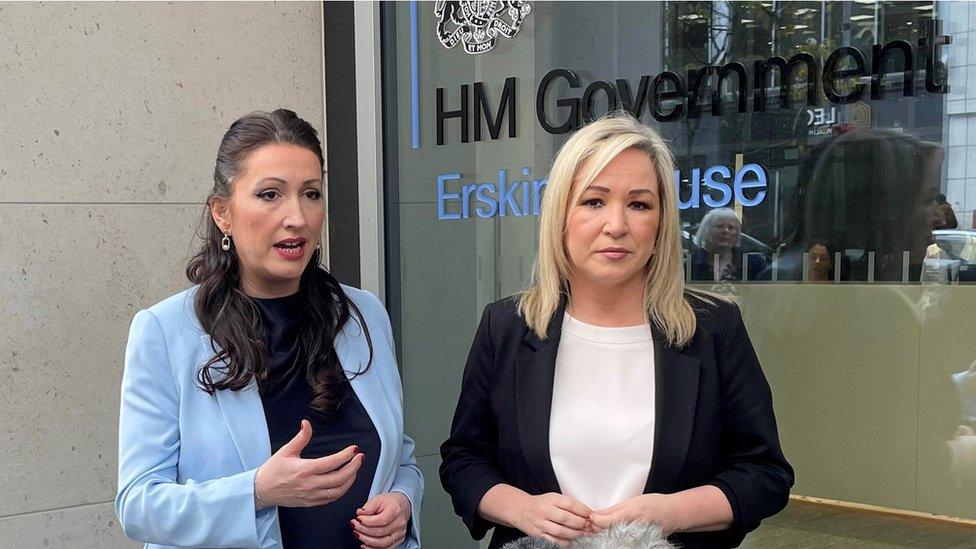
The first and deputy first ministers have highlighted the challenges faced by Stormont departments
She said it was regrettable as the executive had a collective job to do.
Deputy First Minister Emma Little-Pengelly of the Democratic Unionist Party said she understood Mr Swann's concerns, but said if Mr Swann had received what he asked for "it would have consumed the entirety of what additional was available for the budget."
"There are other issues of key importance, special educational needs including broader education, justice. There are competing priorities," she said.
Finance Minister Caoimhe Archibald, of Sinn Féin, said it was regrettable no department got all the funding they bid for.
She renewed her call to the UK government to review the overall public spending settlement for Northern Ireland.
Her department said the total available funding for departments rose by 6.3% from last year's opening position to £13.5bn to £14.4bn this year.
That is a much larger annual rise than in recent years, reflecting the impact of the funding package which accompanied the restoration of devolution.
That percentage increase is not adjusted for the impact of inflation.
The biggest percentage increase of 11.5% for education reflects the need to fund a backdated multi-year pay deal for teachers.
'Hard choices'
Ms Archibald said the Department of Health's allocation included £34m to tackle waiting lists.
The Department of Education's budget includes £25m towards a childcare strategy.
Flagship capital projects such as the A6 and the redevelopment of Casement Park will receive £180m, and there is £20m for Strule Shared Education Campus.
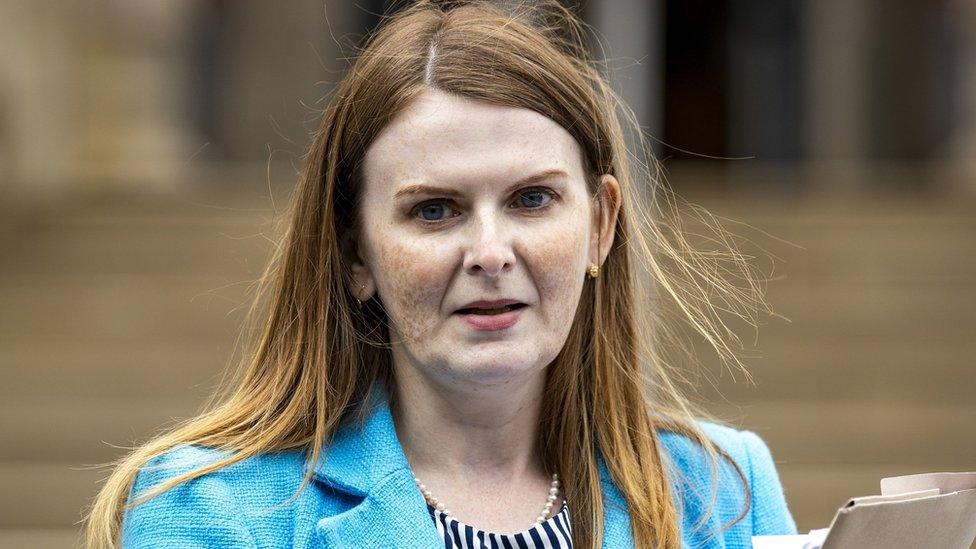
Finance Minister Caoimhe Archibald is going to lobby the Treasury on how Northern Ireland is funded in the future
The executive had to approve any budget before it could be put before the Northern Ireland Assembly.
Speaking before the budget, Justice Minister Naomi Long told an assembly committee she could not "overstate" the impact it would have on her department and Stormont's eight other departments.
"No department has received what they need in order to be able to even maintain the services they already had," she told MLAs.
"It is now for the executive collectively to engage with UK Treasury to see if we can improve that situation even during the course of the year."
Matthew O'Toole, leader of the opposition, said the budget amounted to "allocations without any meaningful prioritisations".
The Social Democratic and Labour Party politician said the executive had to "do better than this" and called for a "clear plan" for rescuing the health service and prioritising other key issues like childcare.
- Published15 January 2024
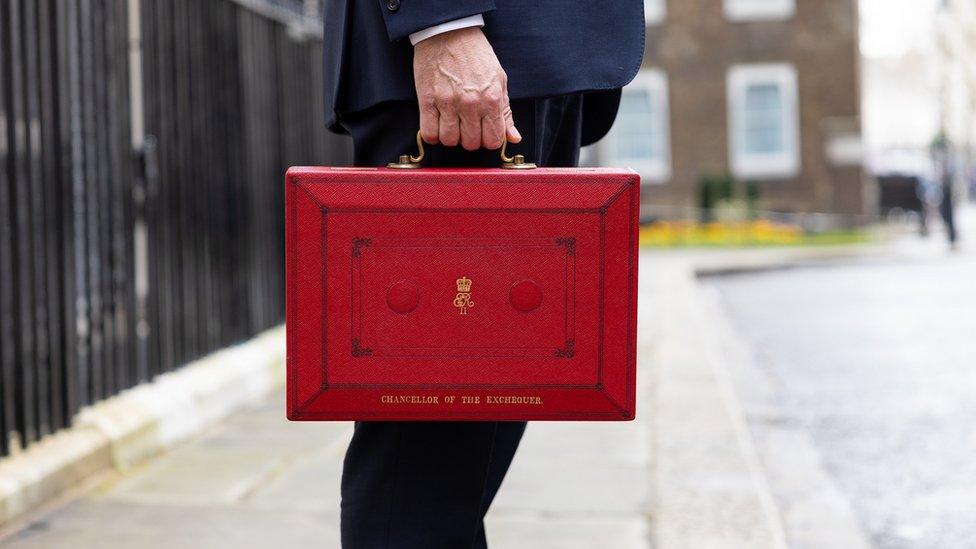
- Published26 February 2024
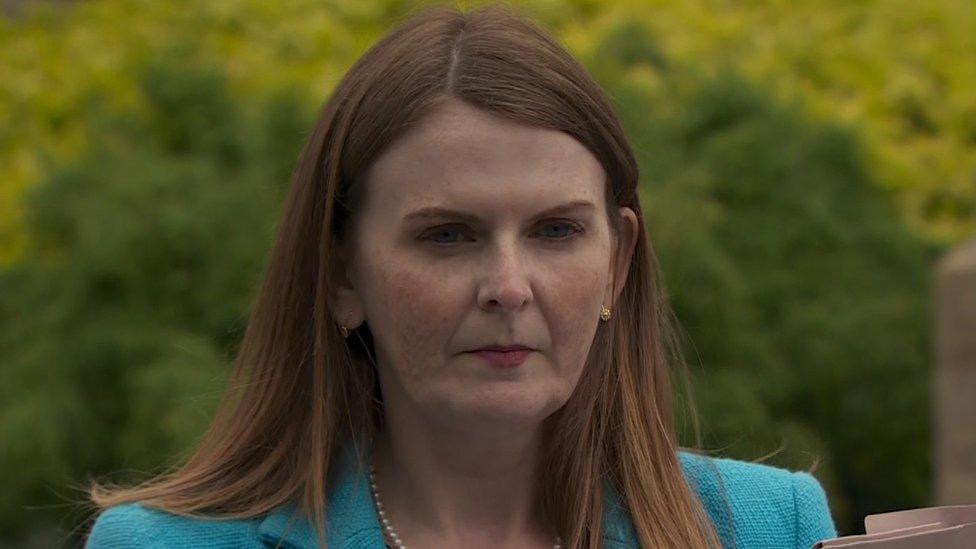
- Published2 March 2024
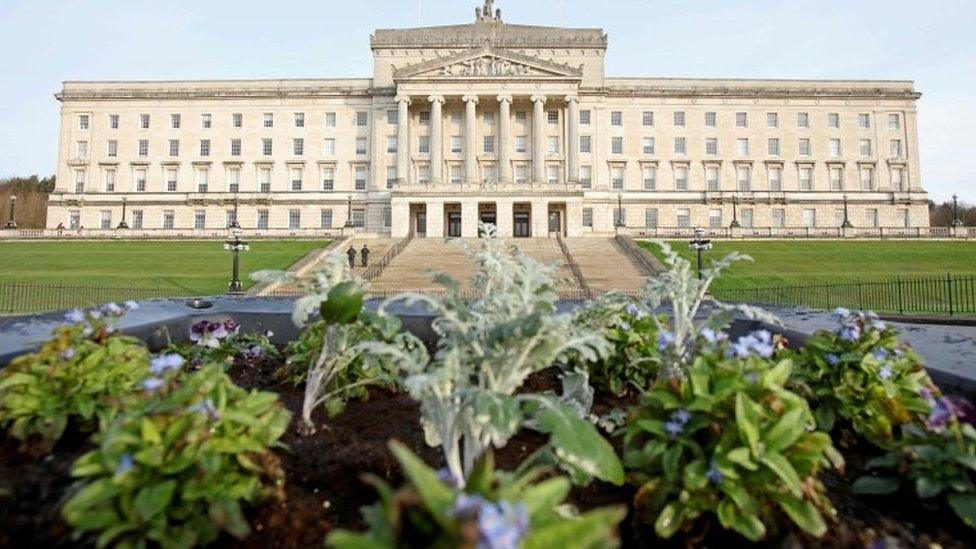
- Published13 February 2024
